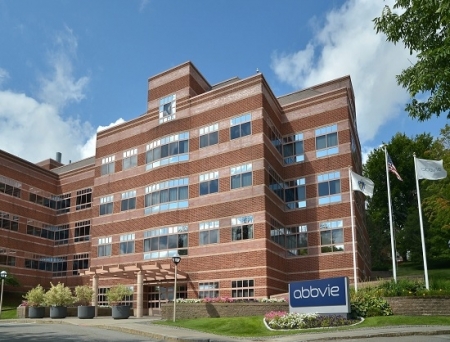AbbVie Expands US Biologics and API Manufacturing Capacity, Seeks FDA Approval for Rare Blood Cancer Therapy

AbbVie has launched multiple initiatives to accelerate biopharmaceutical innovation and manufacturing capabilities in the US. The company has begun a USD 70 million expansion of its AbbVie Bioresearch Center (ABC) in Worcester, Massachusetts – a centre of excellence for biologics research and development and manufacturing. This project is part of AbbVie’s broader commitment to invest over USD 10 billion in the United States to drive innovation and expand its critical biologics manufacturing capabilities and capacity.
The Worcester expansion will further boost AbbVie's domestic biologics manufacturing capacity to meet increased global demand and support US production of current and next-generation oncology and immunology medicines.
Plans include construction of additional biologics manufacturing areas and a three-story building housing laboratory, warehouse and office space. This infrastructure upgrade will enable the expedited transfer of select oncology products from Europe to the US, the company said.
Azita Saleki-Gerhardt, executive vice president and chief operations officer, AbbVie, commented, "For more than three decades, ABC has been at the forefront of scientific innovation and biologics manufacturing. This investment will further expand AbbVie's biologics manufacturing capacity and position ABC to build upon its impressive track record of developing, manufacturing and launching next-generation complex biologic medicines that improve the lives of millions of patients worldwide."
AbbVie also started construction of a new active pharmaceutical ingredient (API) manufacturing facility in North Chicago, Illinois. Once completed, the facility will expand AbbVie’s chemical synthesis capabilities, allowing the company to bring API production for select products from Europe and Asia to the US to support domestic production of current and next-generation neuroscience, immunology and oncology medicines.
In parallel, AbbVie has submitted a new Biologics License Application (BLA) to the US Food and Drug Administration (FDA) for its investigational Pivekimab sunirine (PVEK) for the treatment of Blastic Plasmacytoid Dendritic Cell Neoplasm (BPDCN), a rare and aggressive blood cancer with features of both leukemia and lymphoma.
The submission is based on data from the Phase 1/2 CADENZA trial, which evaluated the safety and efficacy of PVEK in BPDCN.
PVEK is a CD123-targeting Antibody-Drug Conjugate (ADC) designed to deliver potent cancer-cell-killing agents directly to cells expressing CD123, a protein overexpressed in BPDCN.
"Meaningful innovations in cancer research and treatment are happening every day. It is important that these innovations reach patients who desperately need them, including those with rare cancers who have limited options," said Roopal Thakkar, executive vice president, research and development and chief scientific officer, AbbVie.
"We look forward to next steps in the regulatory process for our latest Antibody-Drug Conjugate (ADC), our first ADC in blood cancer, and how it may advance treatment for those living with Blastic Plasmacytoid Dendritic Cell Neoplasm (BPDCN),” he added.
AbbVie AbbVie Bioresearch Center (ABC) Active pharmaceutical ingredient (API) manufacturi Biologics License Application (BLA) Biologics manufacturing Complex biologic medicines Of Blastic Plasmacytoid Dendritic Cell Neoplasm (B Rare and aggressive blood cancer The US Food and Drug Administration (FDA)
Last news about this category



We use our own and third party cookies to produce statistical information and show you personalized advertising by analyzing your browsing, according to our COOKIES POLICY. If you continue visiting our Site, you accept its use.
More information: Privacy Policy














